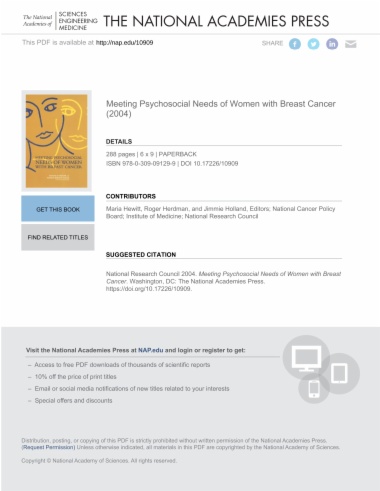

In Meeting Psychosocial Needs of Women with Breast Cancer, the National Cancer Policy Board of the Institute of Medicine examines the psychosocial consequences of the cancer experience. The book focuses specifically on breast cancer in women because this group has the largest survivor population (over 2 million) and this disease is the most extensively studied cancer from the standpoint of psychosocial effects. The book characterizes the psychosocial consequences of a diagnosis of breast cancer, describes psychosocial services and how they are delivered, and evaluates their effectiveness. It assesses the status of professional education and training and applied clinical and health services research and proposes policies to improve the quality of care and quality of life for women with breast cancer and their families. Because cancer of the breast is likely a good model for cancer at other sites, recommendations for this cancer should be applicable to the psychosocial care provided generally to individuals with cancer. For breast cancer, and indeed probably for any cancer, the report finds that psychosocial services can provide significant benefits in quality of life and success in coping with serious and life-threatening disease for patients and their families.